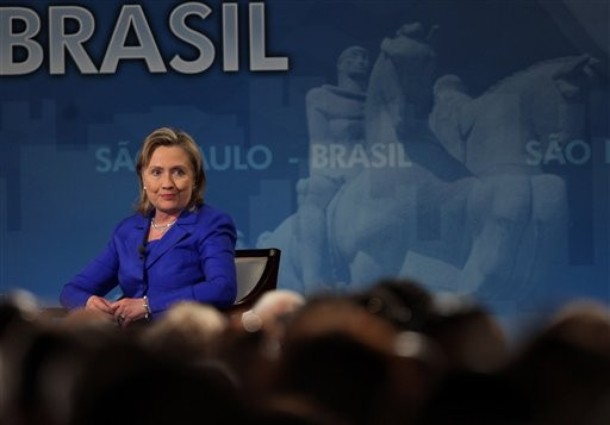
Secretary of State Hillary Clinton returned home from Brazil unable to secure cooperation on increased pressure against Iran’s nuclear program. Nick Gvosdev says we shouldn’t be surprised — and that the ramifications go far beyond this one vote.
Efforts to get a new stronger sanctions resolution are running against not only the expected resistance from China, but reluctance on the part of Turkey to endorse this approach. Meanwhile, India’s private sector shows no real enthusiasm for cutting off commercial relations with Tehran. Instead of showcasing the determination of the “international community,” the Obama administration is facing the reality of a divided world. Even if successful French diplomacy with Russia ameliorates Moscow’s opposition, the current drive for sanctions looks largely like a “Euro-Atlantic” initiative—and if so, it loses a good deal of its punch if half the world chooses to ignore them.
Gvosdev argues that what we’re seeing is that there is no prospect for a "League of Democracies," as John McCain and others have advocated, because "the democracies of the advanced north and west" have very different values and priorities than "the democracies of the south and east." Most notably, the latter much more highly value state sovereignty and economic development and therefore resist the former’s calls for humanitarian interventions, restrictions on commerce to achieve environmental goals, and pressures against the right of regimes to develop nuclear energy capabilities.
Moreover, he points out, the Obama administration has prioritized revamped relations with Russia and India but shown no especial interest in the other two BRICs, Brazil and India.
This is simply another in a seemingly endless series of object lessons that other countries have different interests. While seemingly axiomatic, American foreign policy seems almost always to be discussed as if people everywhere would naturally go along with our preferences if only we had a better public diplomacy program. Alas, the world doesn’t work that way.
James Joyner is managing editor of the Atlantic Council. AP Photo.
Image: clinton-brazil.jpg
